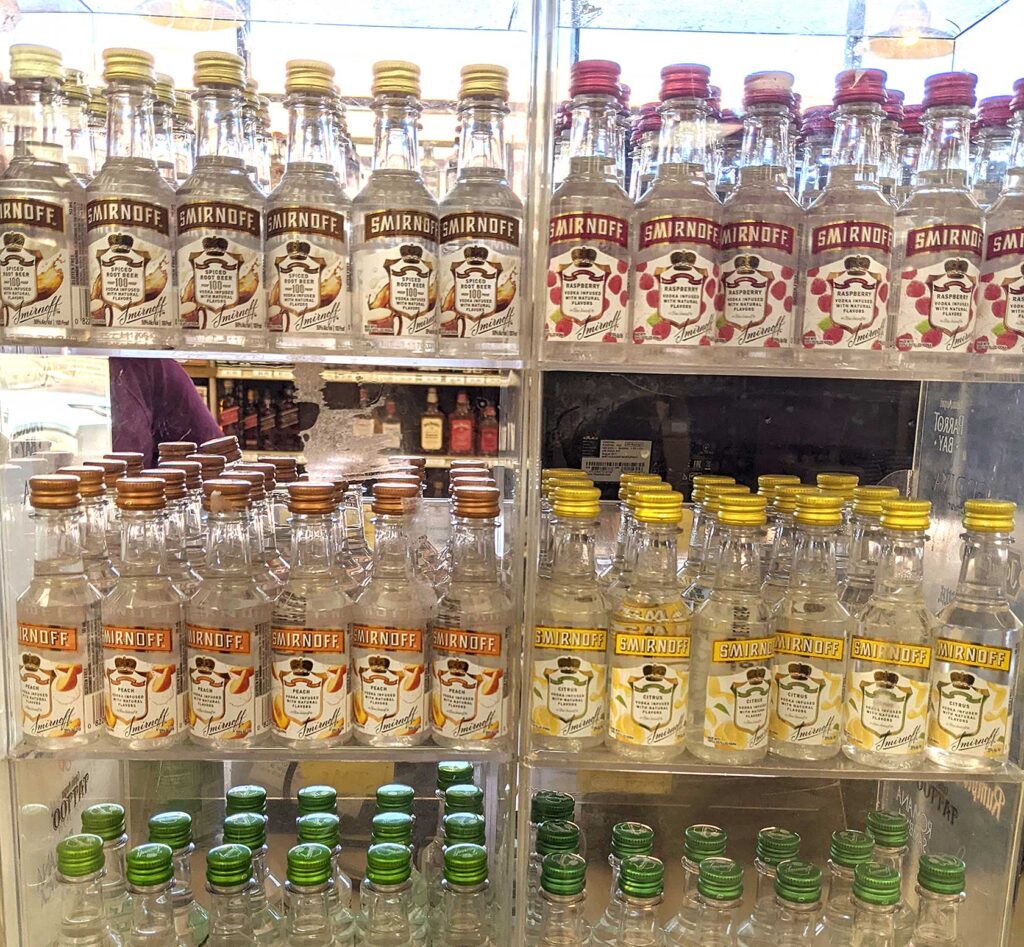Arroyo proposes ban on nip bottles
Cites impact on litter, problem drinkers

Citing public health concerns as well as persistent issues with litter, Boston City Councilor Ricardo Arroyo, who represents the city’s 5th District, is ordering a public hearing to discuss the potential benefits of a citywide ban on single-serving or miniature alcohol bottles — known popularly as “nips.”
The proposal is not for a new city ordinance — nips cannot be banned through ordinance, according to Arroyo. Rather, Arroyo is calling for a hearing to essentially request that the city’s Licensing Board use its discretion to require businesses receiving liquor licenses not sell the small bottles of liquor.
In a statement, Arroyo argued that Boston should consider following the example set by other big cities, as well as other Massachusetts municipalities, including Chelsea and Newton, which have already implemented such bans.
“The data is clear that in cities that have banned the sale of nips there is a significant and positive impact on public health. We should put the well-being of our communities first by banning the sale of nips in Boston as well,” said Arroyo.
The statement from Arroyo’s office cites an article by Commonwealth Magazine, which found that the number of alcohol-related ambulance calls dropped in Chelsea after that city banned nips and argues that the city saw a drop in incidents of public intoxication.
Arroyo argues also that nips contribute to litter, as the small bottles — which apparently cannot be recycled due to their size — are often discarded in the street.
“This has contributed to massive amounts of litter in communities like Hyde Park, where in one instance, 10,000 nips were collected in less than two months,” the statement from Arroyo said.
The bottle litter “is one of the things residents most complain about,” acknowledged Ed Gaskin, executive director of Greater Grove Hall Main Streets. But rather than a ban on nips, Gaskin suggested the litter problem might better be solved by establishing a 5-cent deposit on the tiny bottles.
“Right now, the single-use bottles, you throw them on the ground, and they stay there,” Gaskin said, while with a 5-cent deposit, “there’s an incentive for someone to pick them up.”
Arroyo’s proposal is already seeing pushback from industry representatives — including and especially the Massachusetts Package Store Association, which represents hundreds of stores selling alcohol across the commonwealth.
Speaking with the Banner, MPSA Executive Director Robert Mellion rejected the assumption explicit in Arroyo’s proposal that nips are associated with, if not directly tied to, problematic and unhealthy behavior. He noted that some people simply prefer to buy liquor in small amounts.
“First, I would just not make an assumption that anybody who consumes 100 milliliters or down is an addict — that’s not the case … It’s not all just one type of person,” Mellion said.
As for litter, Mellion takes exception to the notion that the mere sale of nips causes litter — he points to a lack of waste receptacles in municipalities across the Commonwealth.
Mellion does support the idea of expanding the Massachusetts “bottle bill” to include deposits for nips — provided the legislature also increases the handling fee store merchants receive for facilitating the return and recycling of bottles and cans to “incentivize the state to clean up itself.”
But banning the sale of nips is the wrong approach and would hurt small businesses — severely in many cases, Mellion says.
“There are many stores — and it kind of depends upon the area, but there are many stores — where small-bottle sales comprise 20% of their overall net income … It will put people out of business,” said Mellion.
Mellion further argues that many — nearly half, he says — of liquor stores in Massachusetts are minority-owned, “so that’s going to be who you’re affecting.”






